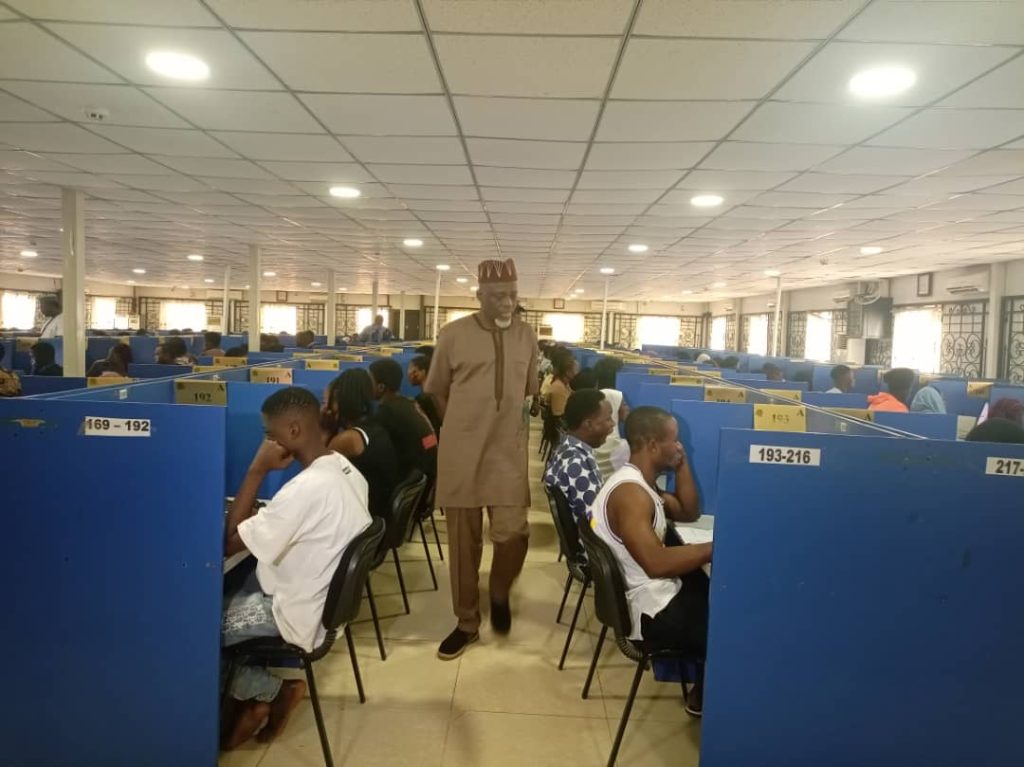The Nigerian Government has established 18 years as the minimum age for admission into tertiary institutions.
During a monitoring exercise of the ongoing 2024 Unified Tertiary Matriculation Examination (UTME) in Bwari, Federal Capital Territory, the Minister of Education, Tahir Mamman, issued the directive and criticised parents for pushing their underage children into tertiary institutions.
He stated that the 18-year standard aligns with the 6-3-3-4 education system and noted instances of students aged 15 or 16 taking the entrance exam.
“Parents should be encouraged not to push their wards too much. Mostly, it is the pressure of parents that is causing this.
“We are going to look at this development because the candidates are too young to understand what the whole university education is all about,” he said.
He mentioned that the ministry is working towards providing skill-acquisition opportunities for those who cannot gain admission into tertiary institutions.
“Overall, it is 20 per cent that can be admitted into the university, polytechnic, and colleges of education systems.
“So, where will the 80 per cent go? That is why the issue of skill acquisition is very important.
“Any student who is unable to proceed to tertiary institutions should be able to have a meaningful life after primary and secondary school education, and the only solution to this is skill acquisition,” he said.
Confirming Mamman’s stance on the age benchmark for tertiary institutions, Joint Admissions and Matriculation Board (JAMB) spokesperson, Fabian Benjamin, stated that 18 years aligns with the 6-3-3-4 education system.
Meanwhile, Yusuf Sununu, the Minister of State for Education, commended the conduct of the 2024 UTME, especially applauding the introduction of online examinations to combat malpractices. He also praised the board for setting such a high standard for the examination.

